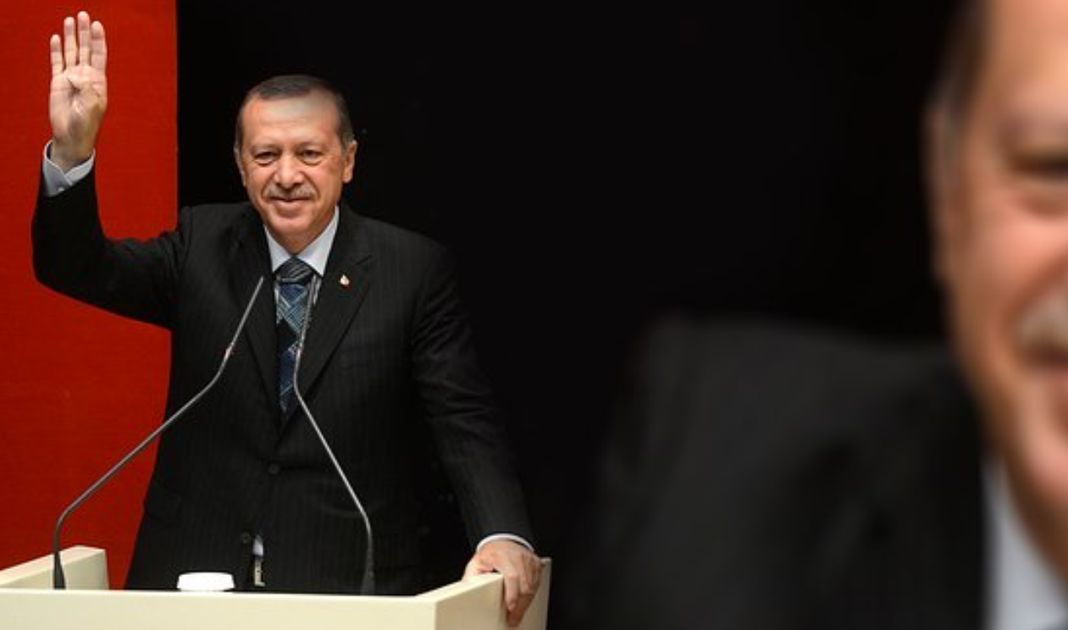Turkey’s New Global Posture: Grand Strategy and Geopolitical Imperatives. Part II

(pixabay.com)
Energy Independence
Turkish plans for the creation of energy independence are based upon three main pillars with the use of critical sources of power:
- Being one of the main energy hubs for oil and gas transportation. Now through the territory of Turkey, several pipelines of strategic importance for the energy security of the EU are passing: the Trans-Anatolian Natural Gas Pipeline (TANAP), the Trans-Adriatic Pipeline (TAP) and Turkish Stream. It is in Turkey’s interests to maintain such a status quo and its status as a crucial energy hub of oil and gas supply for the European Union.
- Establishing control over gas and oil in the Eastern Mediterranean; namely over off-shore gas reserves in the Levantine Basin near Turkish and Turkish Cyprus territorial waters. Ankara faces a coalition of four states: Cyprus, Greece, Israel and France. These countries are particularly irritated by Turkey’s plans to explore gas deposits in Cypriate territorial waters, in a move that tremendously sharpens the competition between the regional players. Due to this factor and two additional Turkish claims, for leadership over the Muslims and the military posture in the Middle East, the situation is becoming highly aggressive in nature.
- A very important element of the Turkish strategy for the upcoming decade is to block the construction of the East Med Pipeline because it directly harms Turkish national interests as a critical energy hub.
- To create its own independent system of Nuclear Power Plants. The first Turkish nuclear power plant is going to be built in Akkuyu in Southern Turkey by Russia.
- For many years, Turkey has been complaining about a limited number of nuclear-armed nations retaining an unacceptable monopoly over nuclear weapons. It is worth quoting Erdogan from the UN: “Several countries have missiles with nuclear warheads, not one or two. But [they tell us that] we can’t have them. This I cannot accept.” Undeniably, sooner or later Turkey will pursue nuclear weapons, but there is a great deal of skepticism in terms of whether or not they will achieve this status.
- To create an independent system of hydroelectric power stations. Ankara can generate this critical energy resource due to Turkey’s mountainous landscape, abundance of rivers, and its position surrounded by three seas. Turkey’s agenda is to construct 22 dams and 19 hydroelectric power plants; the biggest part of these plans has already been completed. Turkish ambitions may cause water shortages in downstream countries like Syria and Iraq because of the construction of dams and plants on the Tigris and Euphrates Rivers.
- Additionally to hydropower, Turkey plans to increase its share of renewable energy with two supplementary elements: wind and solar power. However, the situation with these power sources is still at an incomparable level with other energy sources. Turkey is determined to gain two-thirds of its electricity from renewables by 2023. This is a part of the 2023 Vision strategy.
Technological and Industrial Independence
This part of Turkey’s grand strategy is overwhelmingly intertwined with the general concept of national security. The dependence on western technologies, especially from the most advanced and important industries, was considered by Ankara as an element of weakness. Hence, the country is implementing civilian and military programs for the development of competitiveness and independence in the field of technology and innovation. Turkey hopes that in the next decade it is going to develop civilian and military industries that would provide full or partial technological independence.
Turkey’s Space Ambitions
In recent years, it became obvious that the Age of Space Discovery is ahead of us. Moreover, space ambitions are an indispensable element of Great Power status. In 2019 the Turkish minister Mustafa Varank, who is responsible for Turkey’s space program, stated straightforwardly that “Countries that do not make it to space, will not have a say on Earth in the future.” They totally recognize the importance of space power for the future and they will definitely try to become a space power. Space ambitions have been included into the country’s grand strategy. Turkey began to gain momentum in the space sector in the 2000s, but only recently has the process embodied into a serious ambitious strategy. 2018 saw the creation of the Turkish Space Agency (TUA). In January 2020, Recep Erdogan promised that Turkey would reveal its national space strategy at the end of the year. The agency is closely cooperating with the two most advanced Turkish R&D institutions: TÜBİTAK Space Technologies Research Institute and Robonik Mechatronics Technologies. They have closely participated in the technological drone revolution in the country. Actually the drone revolution in Turkey is evidence that the technological goals which Turkey is indicating are going to be achieved. This revolution was made possible by an unprecedented level of management and accumulation of intellectual forces. Furthermore, such Turkish companies as ROKETSAN, ASELSAN or Turkish Aerospace Industries are responsible for building launch vehicles, satellite systems and UAVs. It should be noted that Turkey still suffers from a dependence on foreign technologies, but the aim is crystal clear – to achieve a full complex of technological independence.
In a nutshell, the Turkish space strategy is based upon the following ambitions:
- to develop its own R&D institutions;
- Satellite System (military and civilian): for example the Göktürk-1, 2 and 3 satellites project since 2009, whose aim is to launch indigenous realization of satellite assembly. For these purposes the Turkish Space Systems, Integration and Test Center was established in 2015. Interestingly, Israel was against the indigenous production by Turkey (both of drones and satellites), but now Turkey is building both drones and satellites on an almost fully independent basis. For example, the project Göktürk-3 (synthetic aperture radar) is the indigenous design of the satellite with ground stations that have the possibility to be used for reconnaissance tasks;
- Since 2013, Roketsan has been building the national UFS Space Launch System. With this system, Turkey plans to reach space independently with its own technologies.
- To build its own cosmodrome (spaceport) and develop the entire space launch system. According to the grand plan when the cosmodrome will be finished it will be an operation by the Space Group Command of the Turkish Air Force that was already created. The spaceport must be created in central Anatolia. Usually Turkey launched its satellites from the Kazakh cosmodrome Baikonur, the Chinese base Jiuquan, the French Guiana Space Centre or in 2020 from the spaceports of Elon Musk. Actually Russia several times invited Turkey for trilateral cooperation in Baikonur and the Roscosmos offered to send to space the first Turkish astronaut in 2023. Dmitry Rogozin, the head of Roscosmos, stated in November 2019 that Turkey can be a space power and Russia can help it become one.
Russia: ally or foe?
Without Russia, Turkey as we know it now would never have emerged and it is possible to say the same about Russia – that without Turkey, Russia would never have become a Middle Eastern power. They use each other and they need each other. If they acted alone, the Western Powers would never have allowed them to achieve what they achieved within the last six years. It is definitely not a union, neither is it an alliance or a strategic partnership. It is genuinely unique cooperation from which they see real geopolitical fruits, but at the same time, this cooperation will never make them allies. Turkey needs Russia as a geopolitical springboard to the global league of great powers. Turkey, for a long time, has been part of the G20, but it has never been part of the Big League as it once was and nowadays is claiming to be, both diplomatically and by real deeds intended to emphasise this status. The current crisis of relations between France and Turkey is bright evidence of this.
Turkey and Russia have much in common historically, but here it is important to note that both powers are demanding from the West the right to rule their own backyard or ‘special zone’ to paraphrase the Monroe Doctrine. If Russia demands such a right for its Near Abroad, the zone of the former Soviet Union, Ankara is demanding independence in determining the future of the Eastern Mediterranean region. This is especially true of the situation in Northern Syria and Northern Iraq. Therefore, just as Russia has become involved in Ukraine, so Turkey is acting in Iraq and Syria.
Autor
Ridvan Bari Urcosta
Senior Analyst at Strategy&Future






Trwa ładowanie...